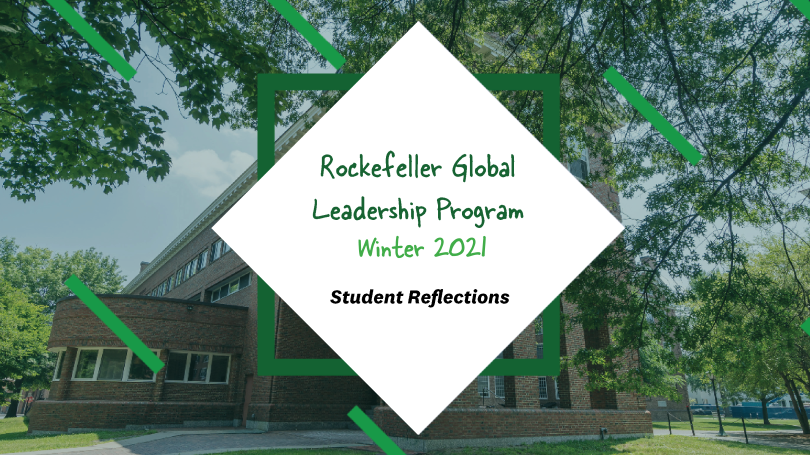
- Public Policy
- Leadership
- Funding
- News & Events
- About the Center
Back to Top Nav
Back to Top Nav
Back to Top Nav
Back to Top Nav
A running theme through the term was remembering to draw on cultural generalizations to help navigate introductions and conversations with people from different backgrounds than our own. Although I was initially confused by the difference between generalizations and stereotypes, I now see how generalizations can be helpful, not harmful like stereotypes. Generalizations give us a starting point and a framework to facilitate introductions and conversations, but the work doesn’t end there. Generalizations, just as the name points to, are general. While they’re often accurate and a good reference point, it’s equally as important to be adaptable as it is to be culturally fluent in your generalizations. Indeed, interactions with others are personal and each will be unique, so it’s important to be ready to use cultural generalizations as a springboard for the rest of your conversation. For sake of continuing the metaphor, once you’re in the air, you must rely on context clues and your best judgement to adapt to the conversation.
While positioning this method of conversation in a global context feels daunting, using generalizations and adaptability is something we already do in our daily conversations. Even within our own communities, we subconsciously develop small-scale generalizations about the various people we interact with on a daily basis. For instance, we don’t typically speak with professors in the same way we might talk with close friends. In this same sense, we would approach a conversation with someone who grew up in Germany differently than we might with someone who grew up in Japan.
Although this is not a skill that you can perfect per se, you’ll feel continually more comfortable encountering unfamiliar situations with people from different backgrounds than your own as you continue to be conscious of how you use generalizations and enhanced adaptability on a small scale. And as you put these skills to the test in various cultural contexts, you’ll continue to increase your cultural and global fluency with each interaction.
Written by John Moreland, a member of the Winter 2021 Cohort of the Rockefeller Global Leadership Program.